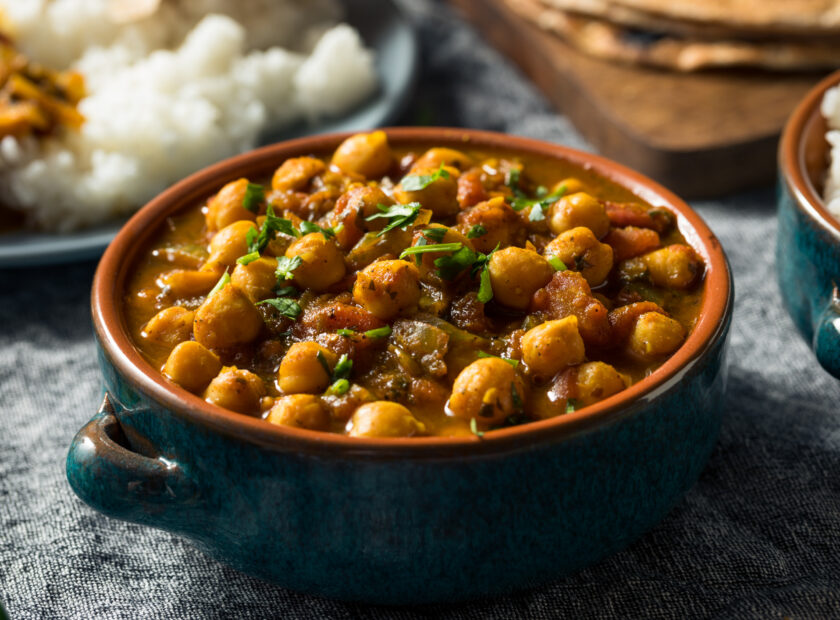The “V” Word – Exploring the challenges, misconceptions and climate benefits of being vegan

What is it about the word “vegan” that riles people up so much?
In the same way that being “woke” has become a loaded term used as a stick to beat people who are empathetic and care about social causes and injustices with, people get defensive at even being in the presence of someone who is vegan. Maybe they’re worried that their world view might be challenged on some level. Being forced to think about their food choices and the morality behind it can be difficult for some. Or maybe they’ve seen Piers Morgan taunting vegan activists on television by talking about bees and spitting out vegan food.
Some people believe that the killing of animals for food and taking their eggs and milk is morally wrong. These people are vegans. Others switch to a plant-based diet for reasons such as personal health or for the benefit of the planet. Whatever people’s reasons are, it is clear that when it comes to the health of the planet and ourselves, eating more plants and less meat and dairy is the way ahead. There are plenty of ways to get protein and be healthy on a vegan diet.
My experience as a vegan
As someone who gave up eating dairy and eggs some five and a half years ago after having stopped eating meat a couple of years earlier, I am painfully aware of all of the negative connotations that come with being a vegan. I used to put myself down if it came up in conversation with someone who I thought might be hostile towards the notion of turning their back on meat and dairy. I would call myself “one of them” as a way to disarm whoever I was talking to.
As soon as the word “vegan” is mentioned, people’s backs are up. All the arguments and morning TV soundbites are deployed…
”Humans have canine teeth for eating meat.”
“It’s what we’ve always eaten.”
“You can’t be healthy on a vegan diet.”
“Where do you get your protein?”
And on it goes. I’ve heard it all and will continue to hear them for as long as I choose to eat a diet without meat or dairy. I get that it’s scary. The realisation that potentially the way you’ve eaten for your entire life, the meals your parents made you as a child, the meals you now make for your very own children, are contributing to worsening climate change. But it’s never too late to start doing something.
Reducing your carbon footprint with a vegan diet
With the state of things in the world now, maybe it’s time for more of us to consider eating less meat and dairy and move towards a more plant-based and climate-friendly diet.
Blazing wildfires raged in It’s easy to feel helpless in the face of climate change. Not to mention angry, frustrated and despairing. And while it’s not a magic bullet that will solve all of the world’s ills, adopting a plant-based diet is the one action an individual person can take to immediately reduce their carbon footprint. According to a recent study, eating a plant-based diet can lower climate heating emissions by 75%, compared to a diet where 100g of meat is consumed daily. That’s overnight! No waiting around until 2030 or 2050 or whenever the next UK net-zero target is pushed back until.
Now, I know a lot of people believe it’s the responsibility of world governments to address and tackle the climate emergency. I’m one of those people. I completely understand why people might be unwilling or skeptical of making such lifestyle changes when there are countries and corporations that appear to be doing little or nothing to address their own contributions to the ever increasing climate emergency. I am also very much of the opinion that doing something is better than doing nothing. And that it’s possible to believe that individual action as well as global, political action aren’t mutually exclusive. Both are possible. It’s just that one is easier to achieve than the other.
It is possible
I also know that there are many barriers preventing people from completely changing their diet overnight. My own transition to becoming vegan was years in the making. I went from being a die-hard meat lover to being vegetarian, mostly for environmental reasons. Then after a couple of years I switched to being vegan for moral and ethical reasons. I have always been a very keen and confident cook, and even I had a lot of learning to do. But it’s easier than you might think to begin making small changes. Making a chickpea rather than chicken curry. Using brown or green lentils instead of mince to make a plant-based spag bol. You can also find some great meat-free meal inspiration on our recipes & ideas page.
Rather than thinking about what you might be losing by giving up meat and dairy, consider what you might stand to gain. Or what the world will look like if we continue to sit and wait for others to come up with a solution.
Tony Perkins, Development Worker (Community Food)
|